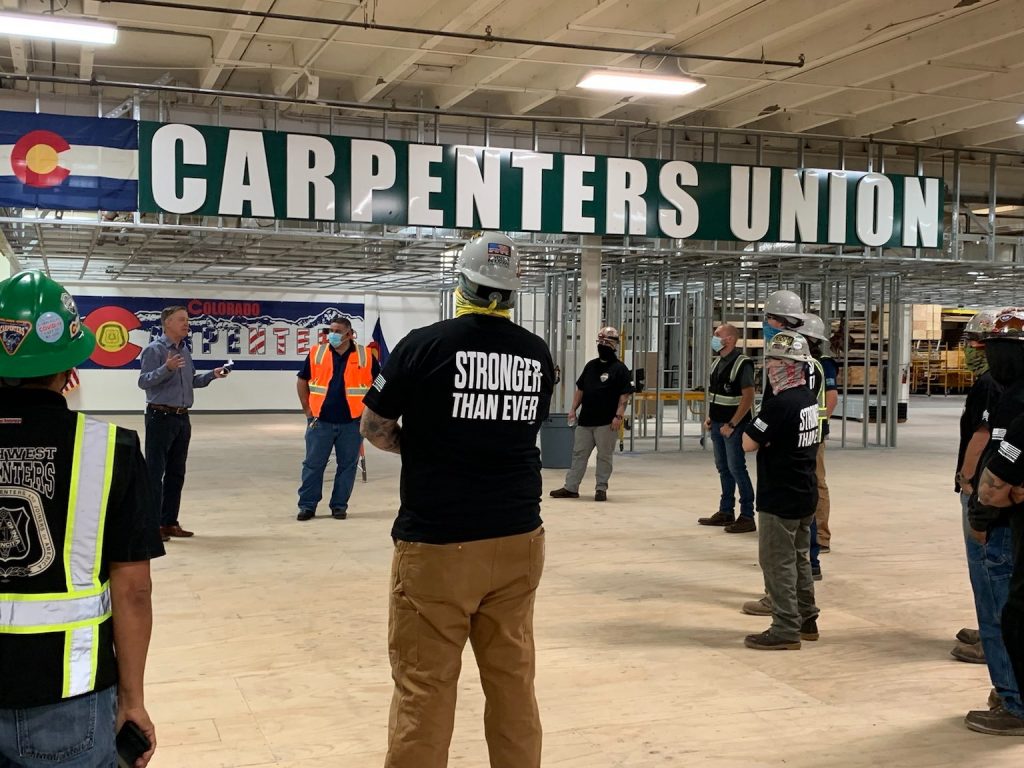With President Biden’s support, Hickenlooper is part of a bipartisan group writing legislation to make the largest infrastructure investment in nearly a century
Denver, Colorado — Today, U.S. Senator John Hickenlooper visited the Southwest Carpenters Regional Training Center to discuss how the bipartisan infrastructure package he helped negotiate would create good-paying jobs, grow the economy, invest in clean energy, and make our nation’s most critical roads and bridges more resilient to climate change.
Speaking to a group of apprentices, Hickenlooper said that the bipartisan plan would be the largest long-term investment in infrastructure since the New Deal. It includes historic investments in public transit, high-speed internet, clean energy transmission, clean drinking water, and electric vehicle infrastructure.
“Our bipartisan plan includes historic investments in public transit, high-speed internet, clean energy transmission, clean drinking water, and electric vehicle infrastructure,” said Hickenlooper. “This is a once-in-a-generation opportunity to invest in infrastructure and make sure America remains competitive on the global stage.”

“Our state needs a big investment in infrastructure, and Carpenters are ready to build better,” said Mark Thompson, Lead Representative, Colorado Local 555, Southwest Regional Council of Carpenters. “We appreciate Sen. Hickenlooper’s work to deliver a good deal for Coloradans and the opportunity to welcome him back to our training center. We know firsthand that infrastructure is more than roads and buildings, it is about building careers and stronger communities.”
Hickenlooper is part of a bipartisan group writing the legislation, which President Biden endorsed last week. The $1.2 trillion framework includes:
- $49 billion for the largest federal investment in public transit in history
- $66 billion for passenger and freight rail
- $109 billion to repair and rebuild roads and bridges
- $7.5 billion to build a national network of 500,000 electric vehicle chargers
- $65 billion to connect every American to reliable high-speed internet
- $55 billion for clean drinking water and wastewater infrastructure
- $73 billion for clean energy transmission
- $47 billion to prepare for the impacts of climate change, cyber attacks, and extreme weather events
###
